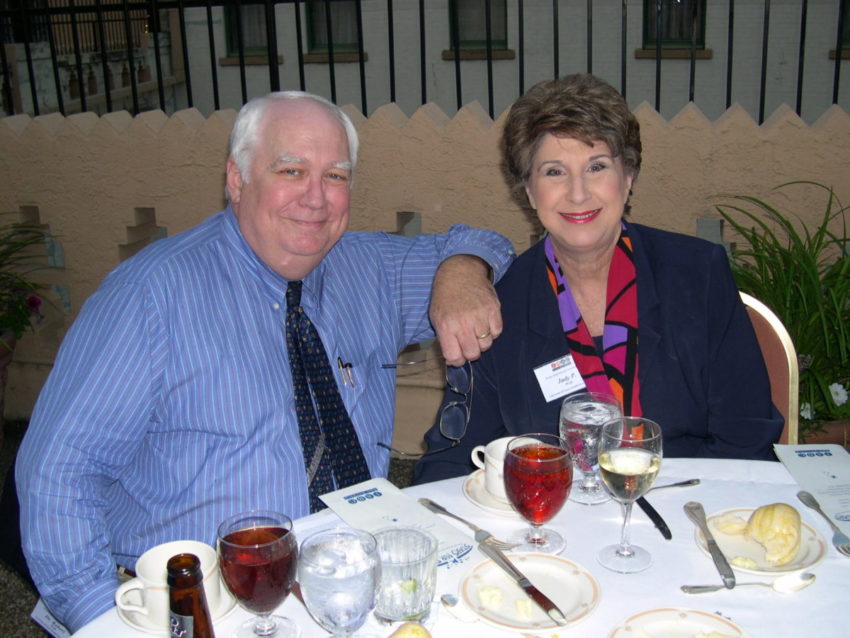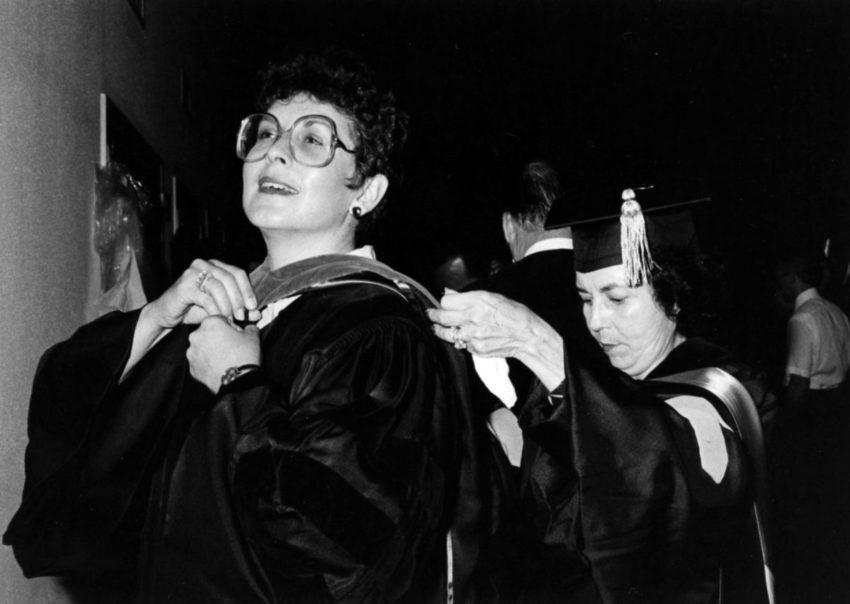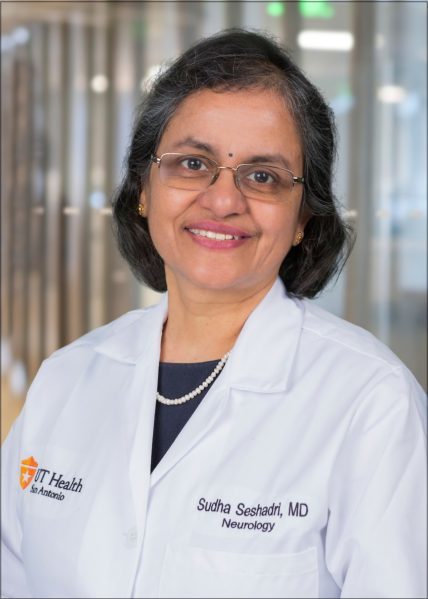Martha L. Wood, Ph.D., former executive assistant to the president of the UT Health Science Center at San Antonio, died April 4 in New Haven, Connecticut. She was 74.
Dr. Wood’s name is memorialized at UT Health San Antonio through the Martha Wood/Dental School Alumni Association Student Scholarship Endowment, which provides scholarship support to dental students who are Texas residents and demonstrate academic excellence.
Dr. Wood served as interim dean of the School of Dentistry from 1981 to 1983.
Her late husband, Herbert H. Pearce, and the Dental School Alumni Association established the $100,000 endowment to support student scholarships at the School of Dentistry.
“Education is the future of our country,” Pearce said at the time the endowment was established in 2004. “We are glad to find students who are worthy of supporting in this way.”
The Connecticut couple donated two-thirds of the endowment and the Alumni Association donated the remaining $33,333.
Pearce also donated $100,000 to the School of Dentistry in 1999 to begin the Martha Wood Scholarship Fund.
Dr. Wood was the longtime executive assistant to Presidents Frank Harrison, M.D., Ph.D., and John P. Howe III, M.D. She joined UT Health San Antonio in 1979 and retired in 1997.
“She had a remarkable ability to work with practically any situation that presented itself,” said Robert B. Price, longtime executive vice president of UT Health San Antonio who retired in 2003.
Dr. Wood coordinated special projects, including the accreditation of the institution. “She was an all-around capable person,” Price said. “Anything you pitched at her, she could catch.”
Dr. Wood, a reading specialist, was a great believer in education but ended up taking on the formidable task of administration for a growing academic health center. She frequently accompanied the presidents to Austin for meetings. Chancellors, regents, presidents and legislators knew and respected her intellect.
On campus, she respected all employees and in turn had their respect.
“She was one of those special people who could work with almost anyone who sat across the table from her,” Price said.
Funeral services were held in Beaumont, her hometown.







